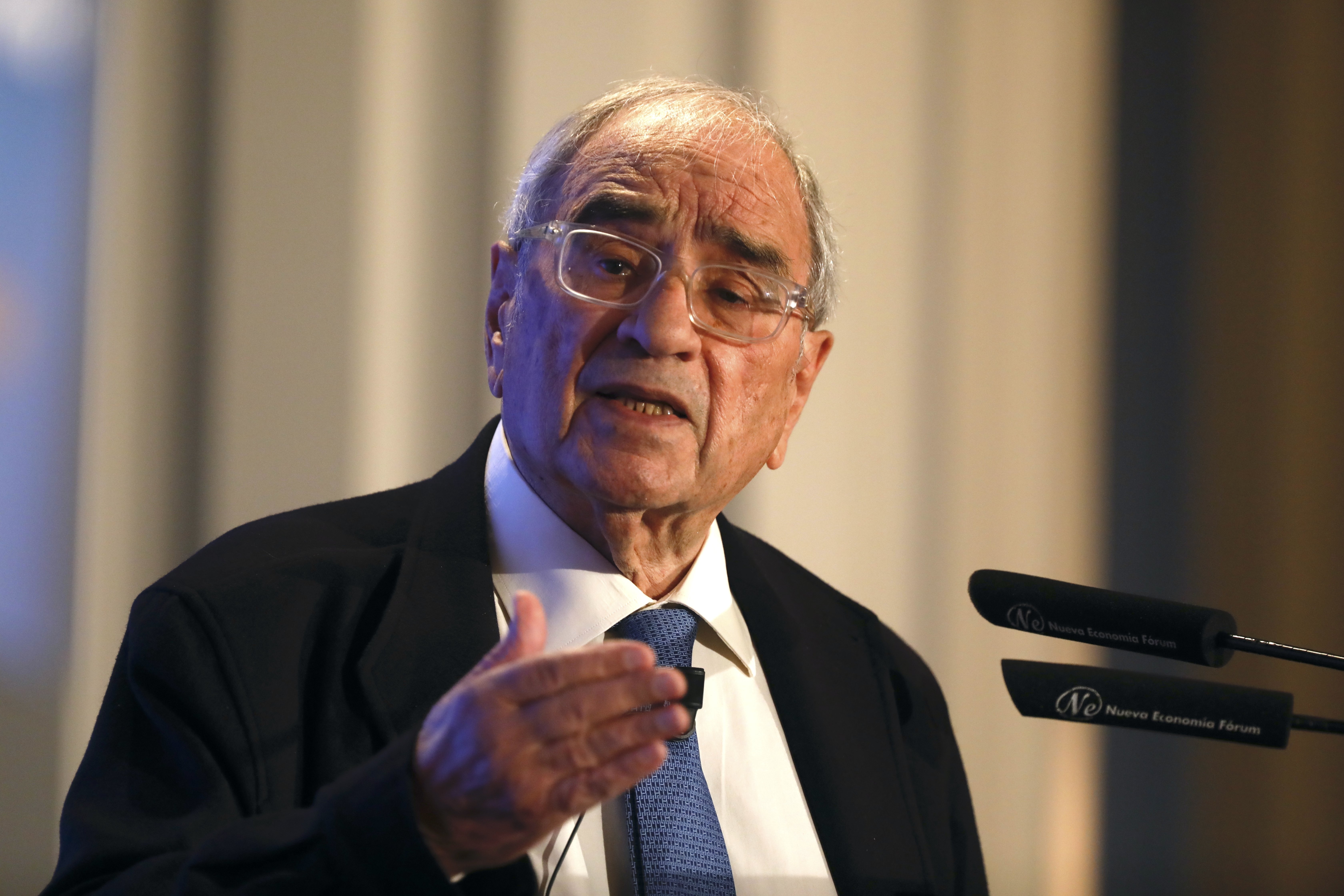The offensive by the People's Party (PP) against Spain's law of democratic memory keeps on coming. The proposed law, a second attempt to legislatively address the terrible human rights legacy of Spain's Civil War and Francoist era, passed through the lower house of parliament, the Congress of Deputies, in mid-July, and will now have to continue its journey through the Senate after the summer break before it can come into force. It will be on its path through the upper house that a scene will take place that promises to be controversial, propitiated by the PP. The Spanish conservative party, itself founded by former Francoist minister Manuel Fraga, has requested the appearance before the Senate's constitutional committee of "relevant" figures from the period of the post-Franco Transition to the current constitutional regime to share their opinion on the new law.
The surprises begin when the names of those proposed to appear are examined. Specifically, the PP calls for the presence of six office holders closely linked to Spain's first governments under democracy, the Union of the Democratic Centre (UCD) executives under Adolfo Suárez and Leopoldo Calvo-Sotelo. There is Rafael Arias-Salgado, who was Spanish minister for relations with parliament, minister of the presidency and minister of territorial administration during this period. Also Marcelino Oreja, foreign minister and previously a member of the National Council of the Movimiento - the fascist regime's totalitarian National Movement. Soledad Becerril, minister of culture between 1981 and 1982. There is Juan Antonio Ortega, minister of education, universities and research for a few months. And also Carmela García-Moreno, member of the UCD executive council.
But the last name on the list is undoubtedly the best known and most surprising: the PP wants to know the opinion of Rodolfo Martín Villa, a Spanish politician with a democratic tradition that is, to say the least, questionable. His political career began during the Franco dictatorship, holding positions such as head of the Spanish university union, general secretary of the Vertical Union and civil governor of Barcelona. After Franco's death he was named minister of trade union relations, and it was during this period that the so-called Events of Vitoria took place: in the Basque city on March 3rd, 1976, security forces forcefully evicted 4,000 strikers assembled in a church. Police fired tear gas, rubber bullets and live rounds at the workers, killing five and injuring 150. In subsequent protests over the massacre, two more people died. Years later, a commission of the Basque Parliament considered Martín Villa responsible for the events, and in 2014 Interpol requested his preventive arrest, after an Argentinian court charged him with crimes against humanity.
The PP rails against EH Bildu
Beyond this, the PP's strategy against the law of democratic memory is scarcely surprising. PP spokesperson Amelia Salanueva took the opportunity to rail against the fact that Basque pro-independence party EH Bildu voted in favour of the text thanks to an agreement with the PSOE. "This is not only an insult to the victims of ETA terrorism, but also an insult to all Spaniards," she said. In addition, she regretted that the bill was drafted by "the representatives of the murderers, kidnappers and extortionists who have done so much harm to Spanish society by attacking life, freedom and democracy". For the PP, it seems that Martín Villa does not fit into this definition.
Key points of the new law
The first key of the planned new law, a successor to 2007's Law of Historical Memory, is its declaration of the "nullity of the rulings of the courts of the Franco regime" and the "illegality of Francoism". The Francoist courts and bodies are not only described as "illegitimate" but also as "illegal". The text defines the crimes of the dictatorship as "very grave" and talks about the "inalienable right of citizens to know the historical truth about the process of violence and terror imposed by the Franco regime" and specifies that, above all, this refers to the "rights of victims".
But despite this, the most controversial point of the bill lies in the will of the Pedro Sánchez coalition government to leave the 1977 amnesty law as it is - that is, the so-called "pact of forgetting" of the Spanish transition, an impediment to judging the crimes of the dictatorship and one of the main reasons why so many aspects of the period have not been broached till now. This is one of the main demands of ERC and Junts that the Spanish executive has not satisfied, and it is the main reason for their abstention, claiming that the law does not dare to do "true justice and reparation".
Beyond this, a third aspect of the new law intends to extend the period under which those suffering human right violations in Spain can be considered "victims of the Franco regime" - moving from the current expiry date, when the current Constitution was passed in 1978, to the end of 1983. This aspect of the bill has concentrated much of the attention of the right-wing opposition.
Additional sections in the legislation propose to set up a DNA bank for victims of the war and dictatorship; the consideration as "victims" of "the communities of the Basque, Catalan and Galician languages and cultures in their linguistic territorial areas in which their speakers were persecuted for using them"; the new law will also give particular recognition in a number of areas to women who were victims of Francoism, as well as to LGTBI people; the location and identification of missing persons comprises an important section of the bill; and finally, it includes a section on the "resignification" of the Valle de los Caídos.

